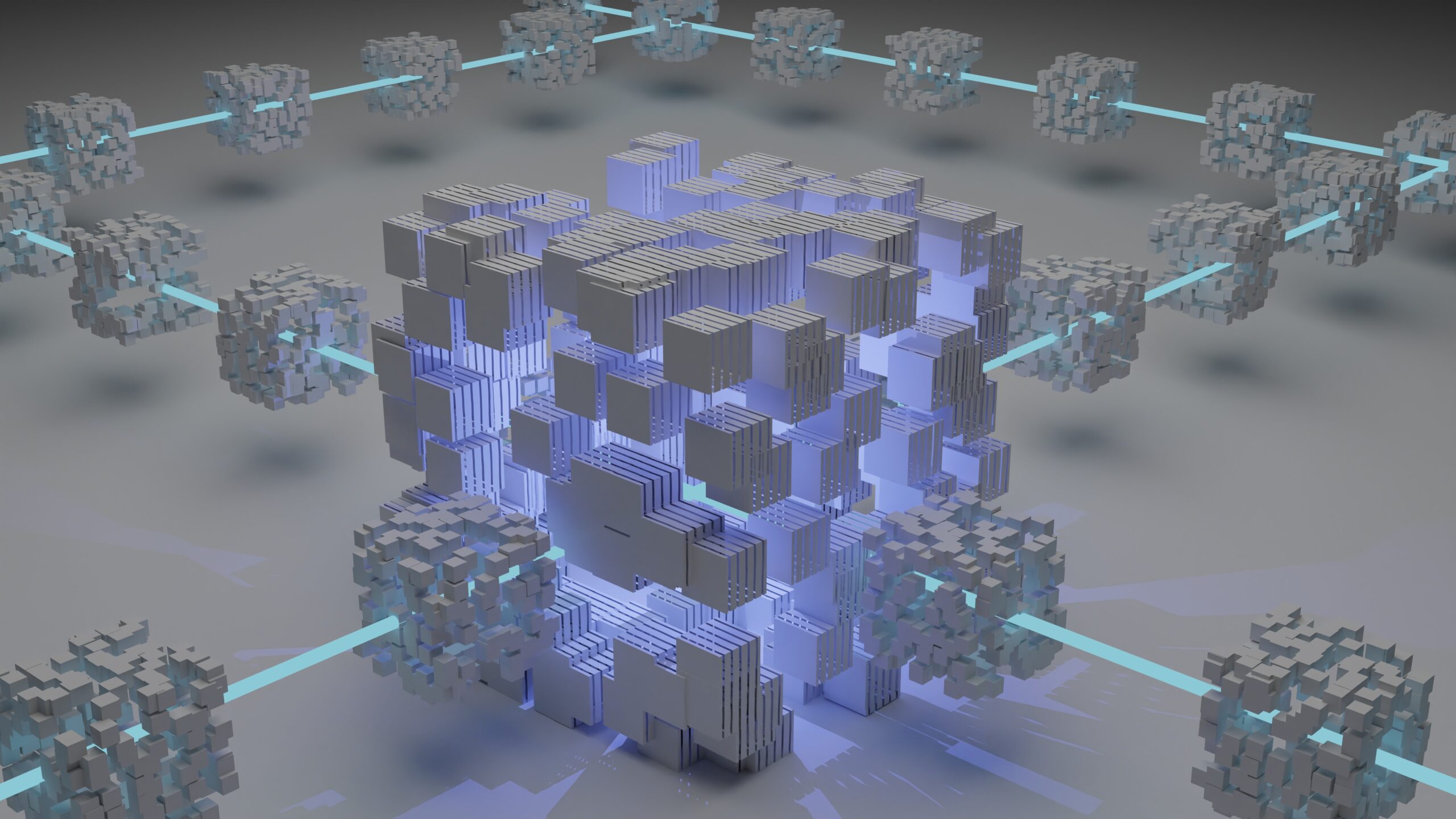In this article, you will discover the exciting world of decentralized cloud storage solutions. With the ever-growing need for reliable and secure storage, traditional centralized options can prove to be limited and vulnerable to data breaches. However, decentralized cloud storage solutions offer a refreshing alternative. By distributing your files across a network of independent nodes, these solutions provide enhanced security, privacy, and accessibility. So, get ready to explore the possibilities of decentralization and embark on a journey towards a more secure and efficient storage system.
What is Decentralized Cloud Storage
Definition
Decentralized cloud storage refers to a system in which data is distributed across multiple nodes rather than being stored in a central server. Unlike traditional cloud storage solutions where data is stored in a single location managed by a centralized authority, decentralized cloud storage utilizes a network of peer-to-peer nodes to store and retrieve data. This distributed approach offers several advantages in terms of security, privacy, cost-effectiveness, and data availability.
Key Features
The key features of decentralized cloud storage include:
Distributed Storage Network: Decentralized cloud storage systems utilize a network of nodes to store and distribute data. This network consists of multiple participants who contribute their storage capacity to the system. When a user uploads data, it is divided into smaller chunks and distributed across different nodes, ensuring redundancy and data availability even if some nodes go offline.
Encryption and Data Security: To protect user data from unauthorized access, decentralized cloud storage solutions employ robust encryption mechanisms. Data is encrypted before it is uploaded to the network, and only authorized users with the encryption keys can access and decrypt the data. This provides an additional layer of security and ensures the privacy of users’ sensitive information.
Incentive Models: Decentralized cloud storage systems often incorporate incentive models to encourage node operators to contribute their storage capacity to the network. These incentive models typically involve the use of blockchain technology and native tokens, rewarding participants for providing storage resources and maintaining the network’s integrity.
Advantages of Decentralized Cloud Storage
Enhanced Security
One of the significant advantages of decentralized cloud storage is enhanced security. Unlike centralized cloud storage solutions, where a single point of failure can result in a catastrophic security breach, decentralized systems distribute data across multiple nodes. This distribution ensures that even if one or several nodes are compromised, the data remains secure and inaccessible without the proper encryption keys. Additionally, the use of encryption techniques in decentralized cloud storage adds an extra layer of security, making it extremely difficult for unauthorized parties to gain access to sensitive information.
Improved Privacy
In decentralized cloud storage, users have greater control over their data and can choose to encrypt it before uploading it to the network. This ensures that even the storage providers cannot access or read the data without the necessary encryption keys. As a result, users’ privacy is significantly improved, as they do not have to rely on the trustworthiness of a centralized authority to protect their data. Decentralized cloud storage solutions prioritize the privacy of their users and provide them with the tools necessary to maintain control over their own data.
Reduced Costs
Decentralized cloud storage solutions offer cost advantages compared to traditional centralized cloud storage services. In centralized systems, users often have to pay a subscription fee or a per-usage fee to store their data in a central server. On the other hand, decentralized cloud storage leverages idle storage capacity from participating nodes, eliminating the need for expensive data centers and reducing operational costs. This results in lower storage costs for users, making decentralized cloud storage a cost-effective alternative for individuals and businesses.
Increased Data Availability
With decentralized cloud storage, data availability is significantly improved. In traditional cloud storage, if a server goes offline or experiences technical difficulties, the data stored on that server becomes temporarily or permanently inaccessible. However, in a decentralized system, data is distributed across multiple nodes, ensuring redundancy and availability even if some nodes are offline or experiencing issues. This increased data availability makes decentralized cloud storage more reliable, minimizing the risk of data loss or downtime.
Resilience to Downtime
Decentralized cloud storage systems are inherently more resilient to downtime. In a centralized system, if the central server experiences downtime or maintenance, all the data stored on that server becomes temporarily inaccessible. However, with decentralized cloud storage, the data is spread across multiple nodes. If one node goes offline or experiences downtime, the data can still be accessed from other nodes in the network. This distributed architecture ensures that users have uninterrupted access to their data, even in the event of node failures or network disruptions.

Disadvantages of Decentralized Cloud Storage
Lack of Centralized Support
One of the drawbacks of decentralized cloud storage is the lack of centralized support. In a traditional centralized cloud storage service, users can rely on a centralized support team to address any technical issues or provide assistance when needed. However, in decentralized systems, the support is distributed among the participating nodes. While there are often community forums and online resources available for users to seek help, the absence of a dedicated support team can make it challenging for users, especially those with limited technical knowledge, to troubleshoot problems or get immediate assistance.
Potential for Data Loss
While decentralized cloud storage systems prioritize data redundancy to ensure availability, there is still a potential risk of data loss. If a significant number of nodes fail simultaneously or if the network experiences a catastrophic event, there is a possibility that some data may become permanently lost. While the chances of this happening are relatively low, it is important for users to regularly backup their data and ensure they have multiple copies stored in different decentralized cloud storage solutions to mitigate the risk of data loss.
Limited Service Offerings
Compared to traditional centralized cloud storage providers, decentralized cloud storage solutions often have limited service offerings. The decentralized nature of the system means that certain features and functionalities commonly found in centralized services may not be available. This can include features such as file sharing, collaborative editing, or integration with popular applications. While decentralized solutions are continuously evolving and expanding their offerings, it is important for users to carefully evaluate their specific requirements and ensure that the available features meet their needs before adopting a decentralized cloud storage solution.
Higher Initial Setup Costs
While decentralized cloud storage can provide cost advantages in the long run, the initial setup costs can be higher compared to traditional centralized solutions. Setting up a decentralized cloud storage system often requires the hardware resources and technical expertise to configure and maintain the network of nodes. Additionally, users may need to invest in native tokens or cryptocurrencies to participate in the incentive models used to reward node operators. These upfront costs can be a barrier for individuals or organizations with limited resources or technical capabilities.
Lack of Standardization
The lack of standardization is another challenge in decentralized cloud storage. With multiple decentralized solutions available in the market, each with its own unique architecture and features, there is a lack of standardized protocols or formats for data storage and retrieval. This can create interoperability issues, making it difficult for users to switch between different decentralized cloud storage solutions or integrate them with existing systems. However, efforts are being made to establish common standards and protocols to address this challenge and promote interoperability among decentralized storage solutions.
Popular Decentralized Cloud Storage Solutions
IPFS
IPFS (InterPlanetary File System) is a decentralized peer-to-peer file system designed to make the web faster, safer, and more open. It uses a decentralized approach to store and retrieve files, enabling users to access and share data in a distributed manner. IPFS utilizes content addressing and cryptographic hashes to ensure data integrity and security. It has gained popularity for its ability to handle large-scale data storage and distribution, making it an attractive option for content sharing and decentralized applications.
Storj
Storj is a decentralized cloud storage platform that uses a peer-to-peer network to store and distribute data. Users can rent out their unused storage capacity to the network and earn tokens in return. Storj employs end-to-end encryption to protect user data, ensuring that only authorized users can access and decrypt the stored files. With its emphasis on security, privacy, and affordability, Storj has gained traction among developers and businesses looking for a decentralized storage solution.
Sia
Sia is a decentralized cloud storage platform that enables users to store and retrieve data using a decentralized network of nodes. It uses smart contracts and blockchain technology to facilitate data storage transactions and ensure data availability and integrity. Sia’s unique selling point is its competitive pricing model, offering significantly lower costs compared to traditional centralized cloud storage providers. Its user-friendly interface and robust security features have made it a popular choice for individuals and businesses seeking an alternative to centralized storage solutions.
Filecoin
Filecoin is a decentralized storage network designed to create a marketplace for decentralized storage services. It allows users to store and retrieve data using a global network of storage providers. Filecoin utilizes the InterPlanetary File System (IPFS) protocol and incorporates blockchain technology for secure and efficient data storage and retrieval. Users can pay storage providers in Filecoin tokens for their services. With its focus on incentivizing storage providers and ensuring data availability, Filecoin has gained attention as a promising decentralized cloud storage solution.
MaidSafe
MaidSafe is a decentralized platform that aims to provide a secure and private network for data storage and communication. It utilizes a distributed network of nodes to store and retrieve data, ensuring data privacy and security. MaidSafe’s unique approach involves self-authenticating data, which means that data is verified by the network itself rather than relying on centralized authorities. Its focus on privacy and security makes it an appealing option for individuals and organizations that prioritize data protection.

How Decentralized Cloud Storage Works
Distributed Storage Network
Decentralized cloud storage works by utilizing a distributed storage network consisting of multiple nodes. When a user uploads a file, the file is divided into smaller chunks and distributed across different nodes in the network. This distribution ensures redundancy and data availability even if some nodes go offline or become unavailable. When the user wants to retrieve the file, the system retrieves the chunks from different nodes and assembles them to reconstruct the original file. This distributed approach makes decentralized cloud storage more resilient to failures and provides increased data availability.
Encryption and Data Security
Encryption plays a crucial role in ensuring the security of decentralized cloud storage. Before a file is uploaded to the network, it is encrypted using cryptographic algorithms. The encryption keys are typically stored on the user’s device, ensuring that only authorized users with the correct keys can access and decrypt the data. This ensures that even if a node in the network is compromised, the data remains secure and inaccessible to unauthorized parties. Additionally, decentralized cloud storage systems often employ end-to-end encryption, ensuring that data is encrypted throughout the entire storage and retrieval process.
Incentive Models
Many decentralized cloud storage solutions incorporate incentive models to encourage node operators to contribute their storage resources to the network. These incentive models often utilize blockchain technology and native tokens. Node operators are rewarded with tokens for providing storage capacity and ensuring the integrity and availability of the network. These tokens can be used within the network to pay for storage or exchanged for other cryptocurrencies. Incentive models incentivize participation in the network and contribute to the overall stability and functionality of decentralized cloud storage systems.
Comparison of Decentralized Cloud Storage Solutions
Performance
When comparing decentralized cloud storage solutions, performance is an important factor to consider. Performance can be evaluated based on factors such as upload and download speeds, latency, and throughput. Each decentralized solution may have its unique architecture and characteristics that impact performance. It is essential to evaluate whether the solution can meet the performance requirements of the specific use case, especially for applications that require real-time data access or high-speed data transfer.
Security Features
Security is a critical aspect of decentralized cloud storage. It is vital to assess the security features offered by each solution, including encryption mechanisms, access control, and data integrity. Solutions that prioritize end-to-end encryption and provide strong access controls offer enhanced security for storing sensitive data. Additionally, features such as data redundancy and distributed storage contribute to the overall security and availability of data in decentralized storage systems.
Pricing Models
When comparing decentralized cloud storage solutions, pricing models play a significant role. Different solutions may have varying pricing structures, including storage fees, transaction fees, or subscription-based models. It is important to evaluate the costs associated with using the solution and assess how it aligns with the budget and requirements of the user or organization. Decentralized solutions that offer competitive pricing compared to centralized alternatives can provide cost advantages in the long run.
Network Size and User Base
The network size and user base of a decentralized cloud storage solution can influence its reliability, availability, and performance. A larger network with a significant number of active nodes increases the chances of data availability and reduces the risk of downtime. Additionally, a larger user base can indicate the popularity and acceptance of the solution within the community. Evaluating the network size and user base can provide insights into the maturity and stability of the decentralized cloud storage solution.
Developer Community
The developer community supporting a decentralized cloud storage solution is crucial for its growth and development. A strong and active developer community contributes to the continuous improvement of the solution, provides support and resources for users, and fosters innovation. Solutions with a vibrant developer community often receive regular updates, new features, and security enhancements. It is important to assess the developer community surrounding a decentralized storage solution to gauge its long-term sustainability and progress.

Use Cases and Applications of Decentralized Cloud Storage
Data Backup and Recovery
Decentralized cloud storage can be used for data backup and recovery purposes. By leveraging the distributed nature of decentralized storage systems, users can store their important files and data across multiple nodes, ensuring redundancy and protection against data loss. In the event of a device failure or data corruption, users can retrieve their backup data from the decentralized storage network, providing a reliable and secure backup solution.
Content Distribution and Sharing
Decentralized cloud storage solutions are well-suited for content distribution and sharing applications. As data is distributed across multiple nodes in the network, it can be accessed and downloaded from any available node, resulting in faster and more efficient content distribution. This makes decentralized storage an attractive option for content creators, artists, and media organizations looking to distribute large files or streaming media content.
Internet of Things (IoT)
The Internet of Things (IoT) relies on the seamless exchange and storage of data from connected devices. Decentralized cloud storage can provide a secure and scalable storage solution for IoT applications. By leveraging the distributed nature of decentralized storage, IoT devices can store and retrieve data in a decentralized manner, reducing latency and ensuring data availability. This is particularly valuable for applications that require real-time data processing and analysis.
Blockchain Technology
Blockchain technology, which underpins cryptocurrencies and decentralized applications, often requires a secure and reliable storage solution for storing transaction data and other information. Decentralized cloud storage systems can provide the necessary infrastructure for blockchain-based applications, ensuring the integrity and availability of critical data. Additionally, the use of encryption in decentralized storage complements the security features of blockchain technology, making it a suitable storage solution for blockchain applications.
Multimedia Storage
The storage requirements for multimedia content, such as images, videos, and music, can be substantial. Decentralized cloud storage solutions offer a cost-effective and scalable storage option for multimedia content. The distributed nature of decentralized storage systems ensures that large files can be stored and retrieved efficiently, allowing content creators, media organizations, and individuals to manage their multimedia assets securely and cost-effectively.
Challenges and Future Trends
Scalability and Efficiency
Ensuring scalability and efficiency in decentralized cloud storage is an ongoing challenge. As more users join the network and the volume of data increases, the network must be able to handle the growing demand without compromising performance. Developers are continuously working on optimizing protocols and algorithms to improve scalability and efficiency in decentralized storage solutions.
Regulatory Compliance
Complying with regulatory requirements, such as data protection and privacy regulations, can pose challenges for decentralized cloud storage. As data is distributed across multiple nodes, ensuring compliance with regulations can be complex. Developers and solution providers are working on implementing mechanisms to address regulatory compliance and enable users to meet legal requirements while leveraging the benefits of decentralized storage.
Interoperability
Interoperability between different decentralized storage solutions remains a challenge. With multiple independent solutions in the market, transferring data or integrating different decentralized storage systems can be cumbersome. Standardization efforts are underway to establish common protocols and open standards that enable interoperability between different decentralized cloud storage solutions.
Integration with Traditional Cloud Solutions
Integrating decentralized cloud storage with existing traditional cloud solutions can be challenging. Enterprises and organizations that already have established workflows and systems based on centralized cloud storage may face difficulties in transitioning to decentralized solutions. Developers and solution providers are working on providing seamless integration options and migration strategies to facilitate the adoption of decentralized cloud storage in traditional IT environments.
Emerging Technologies
Emerging technologies such as edge computing, artificial intelligence, and 5G networks present both opportunities and challenges for decentralized cloud storage. These technologies can significantly impact the scalability, performance, and security of decentralized storage solutions. Developers and researchers are exploring ways to leverage these emerging technologies to enhance the capabilities and adaptability of decentralized cloud storage systems.

Conclusion
Decentralized cloud storage offers numerous advantages compared to traditional centralized solutions. Enhanced security, improved privacy, reduced costs, increased data availability, and resilience to downtime are some of the key benefits of adopting decentralized storage. However, decentralized storage also has its challenges, including the lack of centralized support, potential for data loss, limited service offerings, higher initial setup costs, and lack of standardization.
Popular decentralized cloud storage solutions like IPFS, Storj, Sia, Filecoin, and MaidSafe offer unique features and capabilities, catering to different user requirements. Evaluating performance, security features, pricing models, network size, and developer community can help users make informed decisions when selecting a decentralized storage solution.
Decentralized cloud storage has a wide range of applications, including data backup and recovery, content distribution and sharing, IoT, blockchain technology, and multimedia storage. However, challenges such as scalability, regulatory compliance, interoperability, integration with traditional cloud solutions, and emerging technologies need to be addressed to unlock the full potential of decentralized cloud storage.
As technology advances and the demand for secure, scalable, and cost-effective storage solutions continues to grow, decentralized cloud storage is expected to play an increasingly significant role in the future of data storage and management. By leveraging the benefits of decentralization, users can take control of their data, enhance security and privacy, and reduce dependency on centralized authorities. Decentralized cloud storage is poised to revolutionize the way data is stored, shared, and accessed in the digital age.
References
- Decentralized Cloud Storage Solutions


